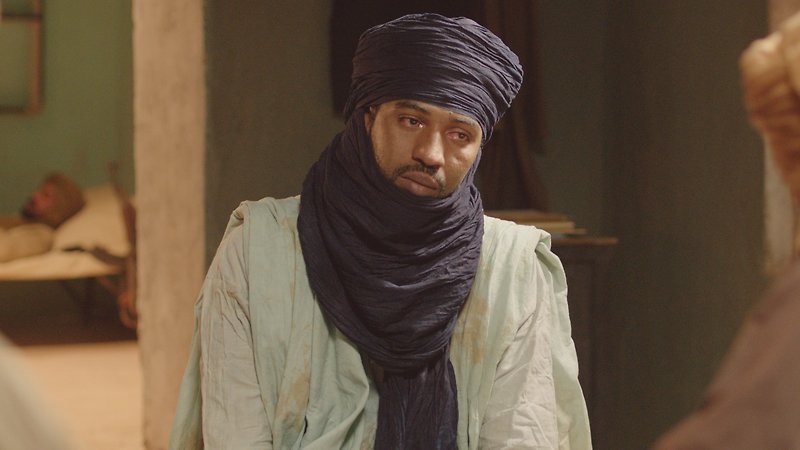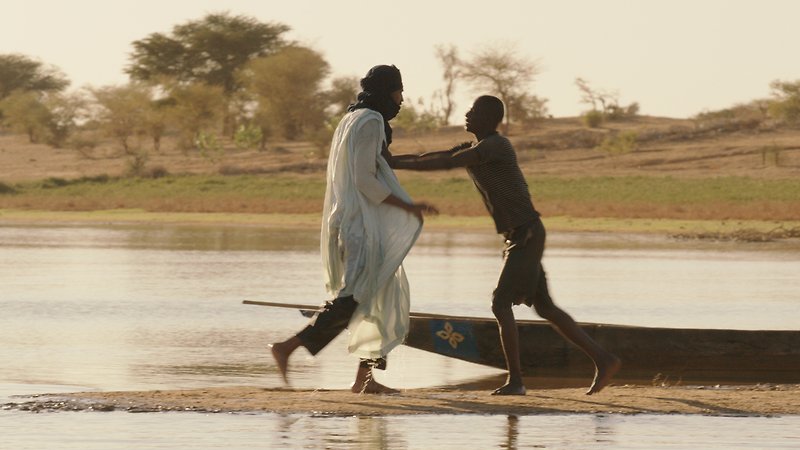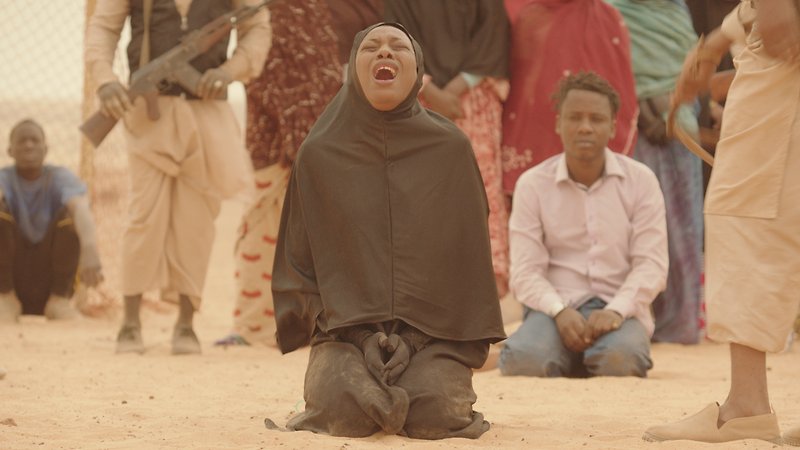Set in the early days of the jihadist takeover of northern Mali in 2012, African director Abderrahmane Sissako’s Cannes Competition drama delivers a beautiful and deeply humane condemnation of religious intolerance.




Abderrahmane Sissako’s passionate and visually beautiful film Timbuktu is a cry from the heart – with all the more moral authority for being expressed with such grace and such care.
Screened as part of NZIFF 2014
Timbuktu 2014
The great African director Abderrahmane Sissako (Bamako, Waiting for Happiness) made an indelible impression at Cannes this year. Dramatising the pervasive intrusion of religious fanaticism in Mali, the country of his childhood, his film embodies the values that are being lost.
“Timbuktu is a wrenching tragic fable, Aesop-like in its moral clarity, about all the injustices Sharia Law can wreak. It’s also gorgeous. Few tracts about religious intolerance have ever been this alive to the beauty in their world – the play of late-evening sunlight across a lake, the nimble joy of a football game the authorities want banned.
In the dunes outside Timbuktu, a cattle farmer called Kidane, played with sad nobility by Ibrahim Ahmed, has built a life with his wife, Satima, their 12-year-old daughter, and a young shepherd boy. Kidane plucks a guitar at night, and their tent feels like a sacred haven under the stars. Sissako’s vision is so offhandedly seductive, it’s a while before you realise what a threat is gathering, and from where. It comes from the armed jihadis prowling the streets on motorbikes, issuing edicts about the forbidden pleasures of cigarette-smoking, music, football…
Sissako says he was inspired, if that’s the word, by the horrifying public stoning in 2012 of an unmarried couple in the town of Aguelhok. His film shows merely a glimpse of a stoning, for a fraction of a second, but it’s enough… This is in no way the remorselessly grim film its subject matter might lead you to expect – it’s full of life, irony, poetry and bitter unfairness. It demands respect, but it also earns it.” — Tim Robey, The Telegraph